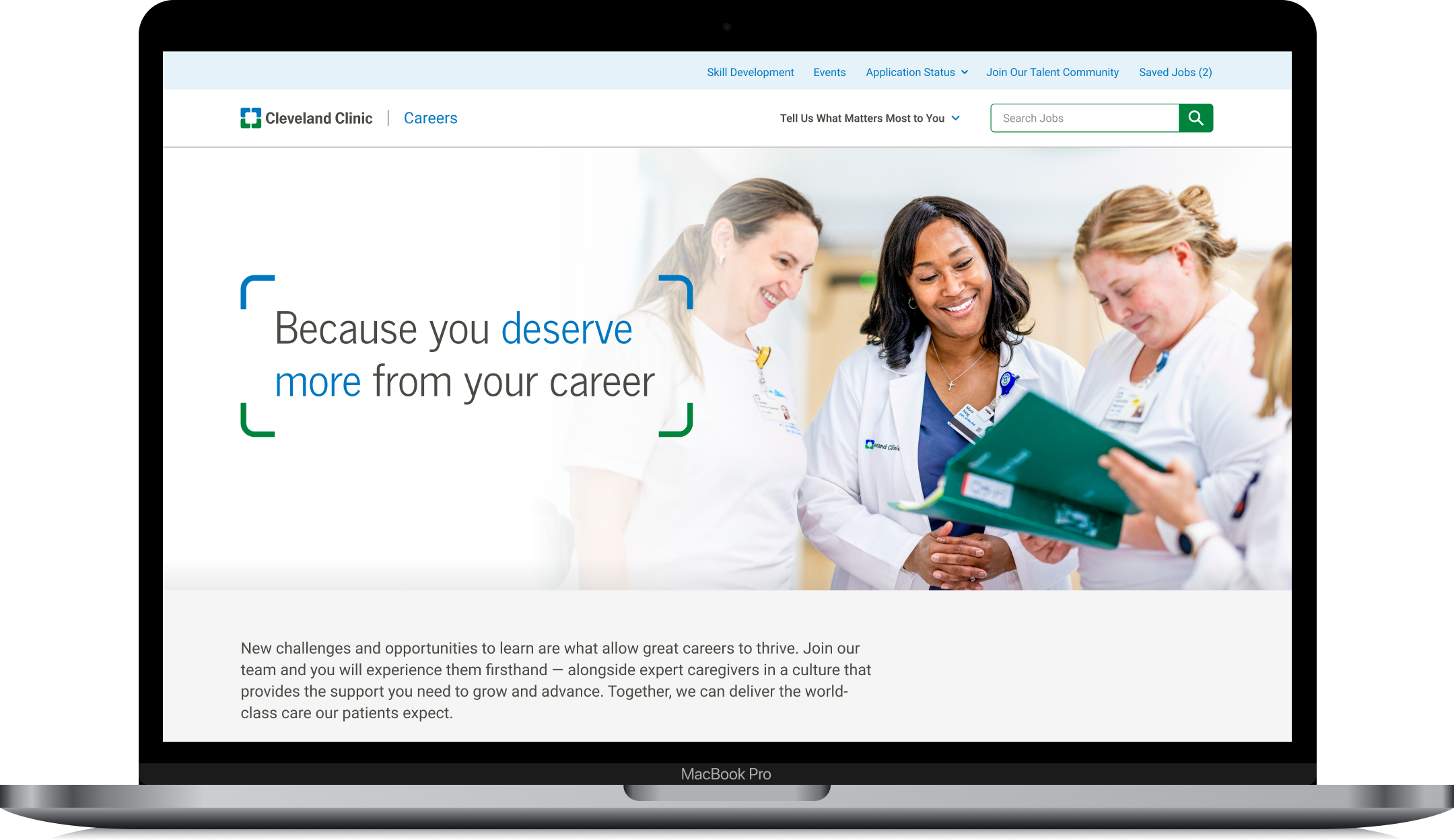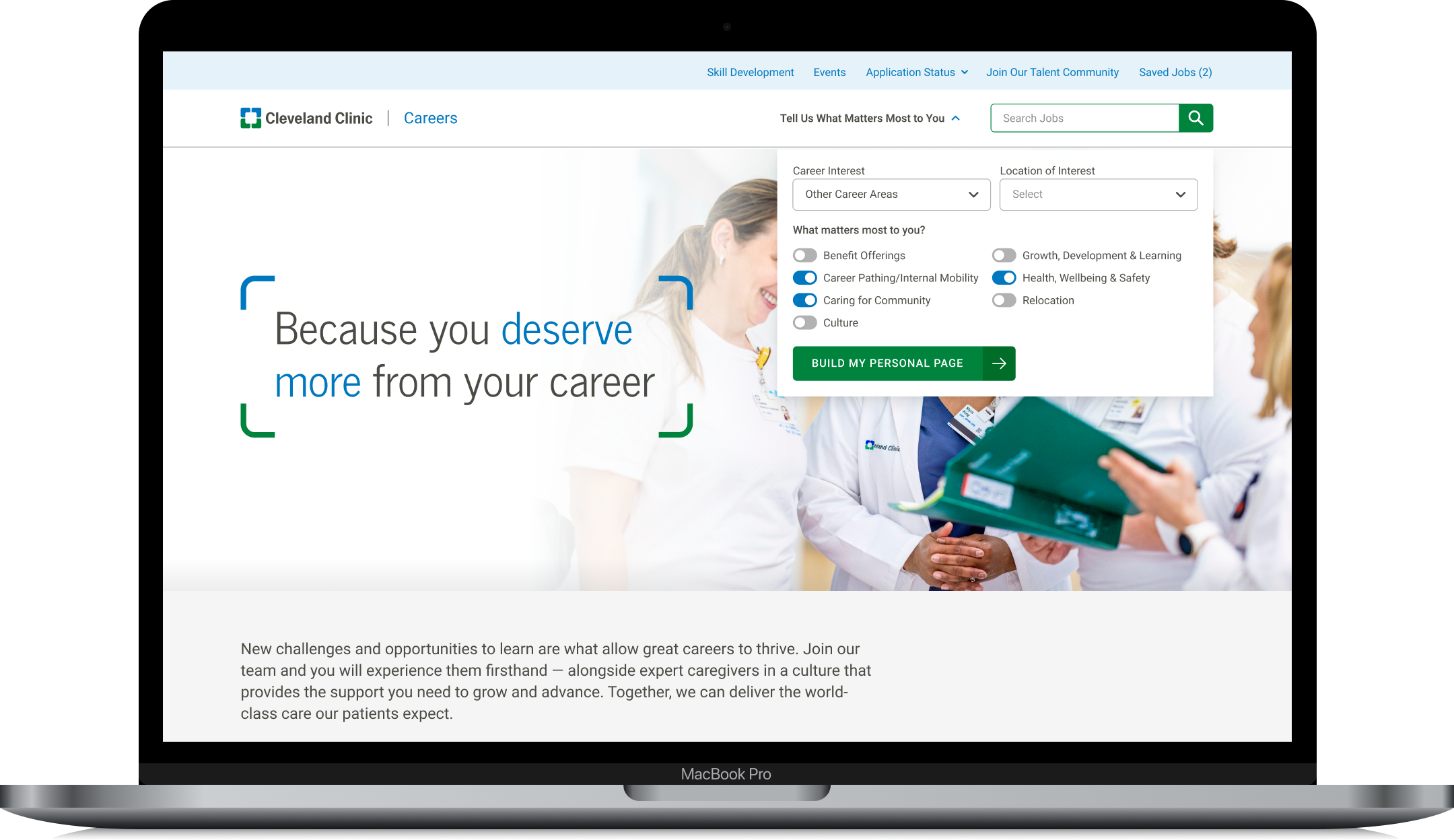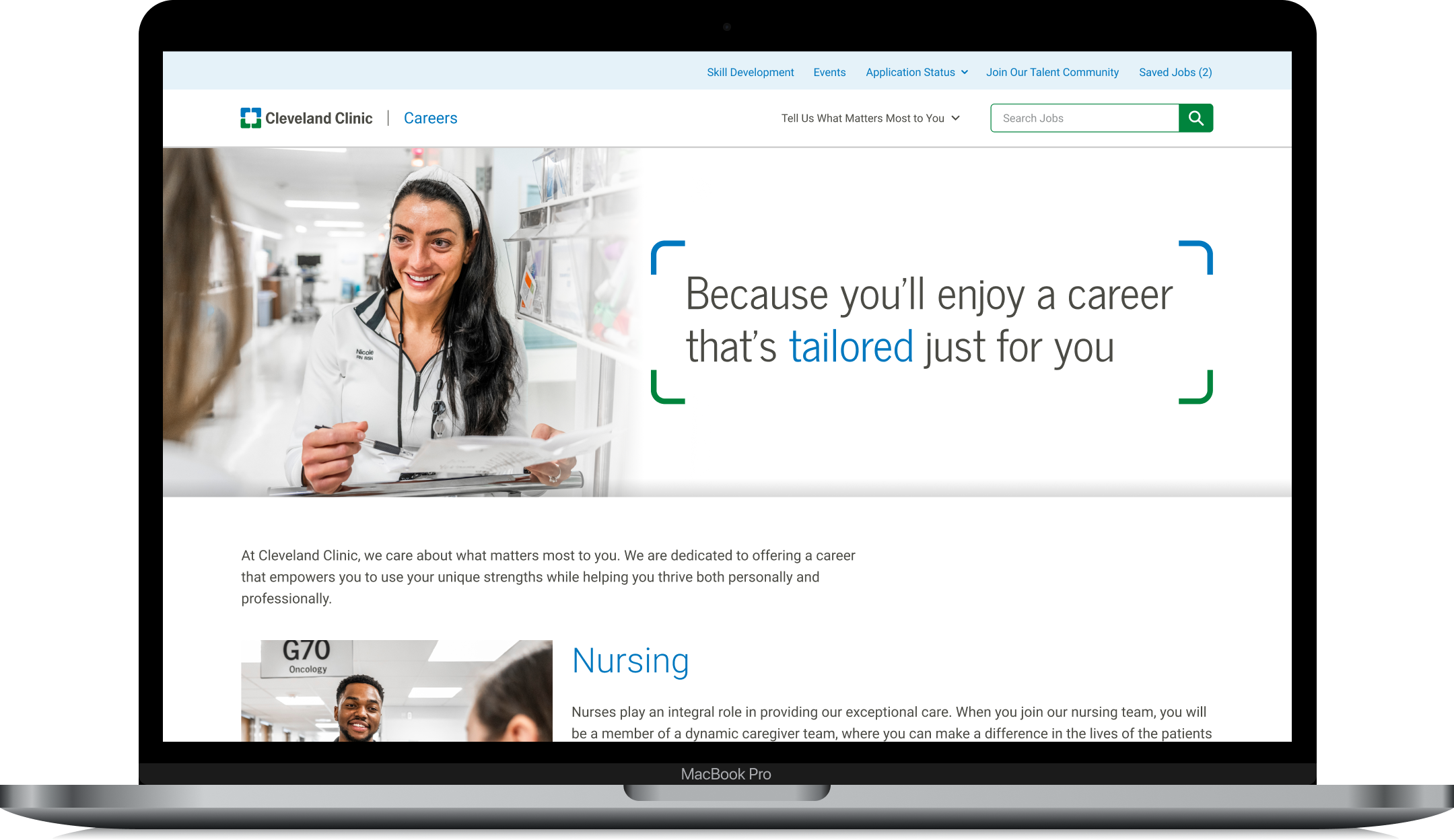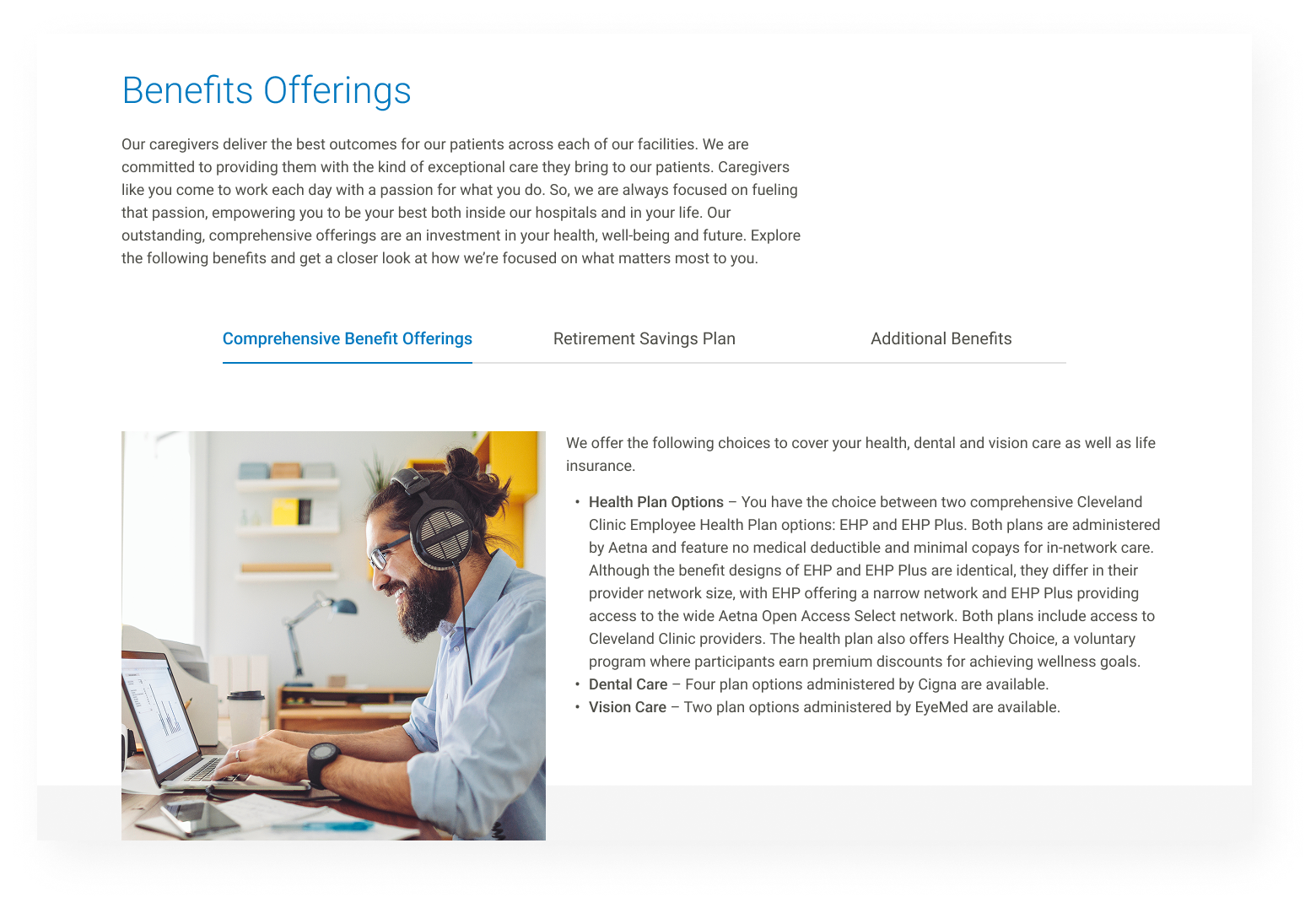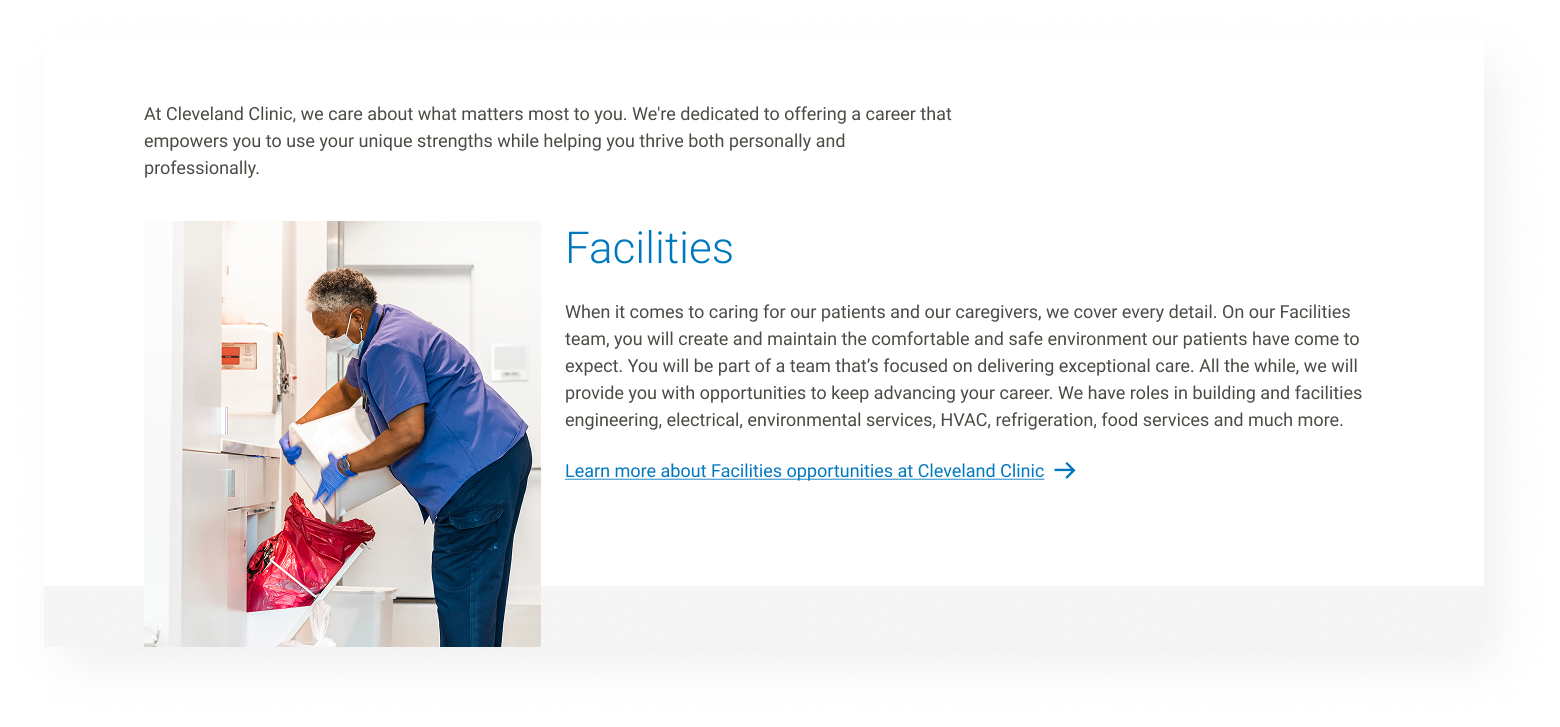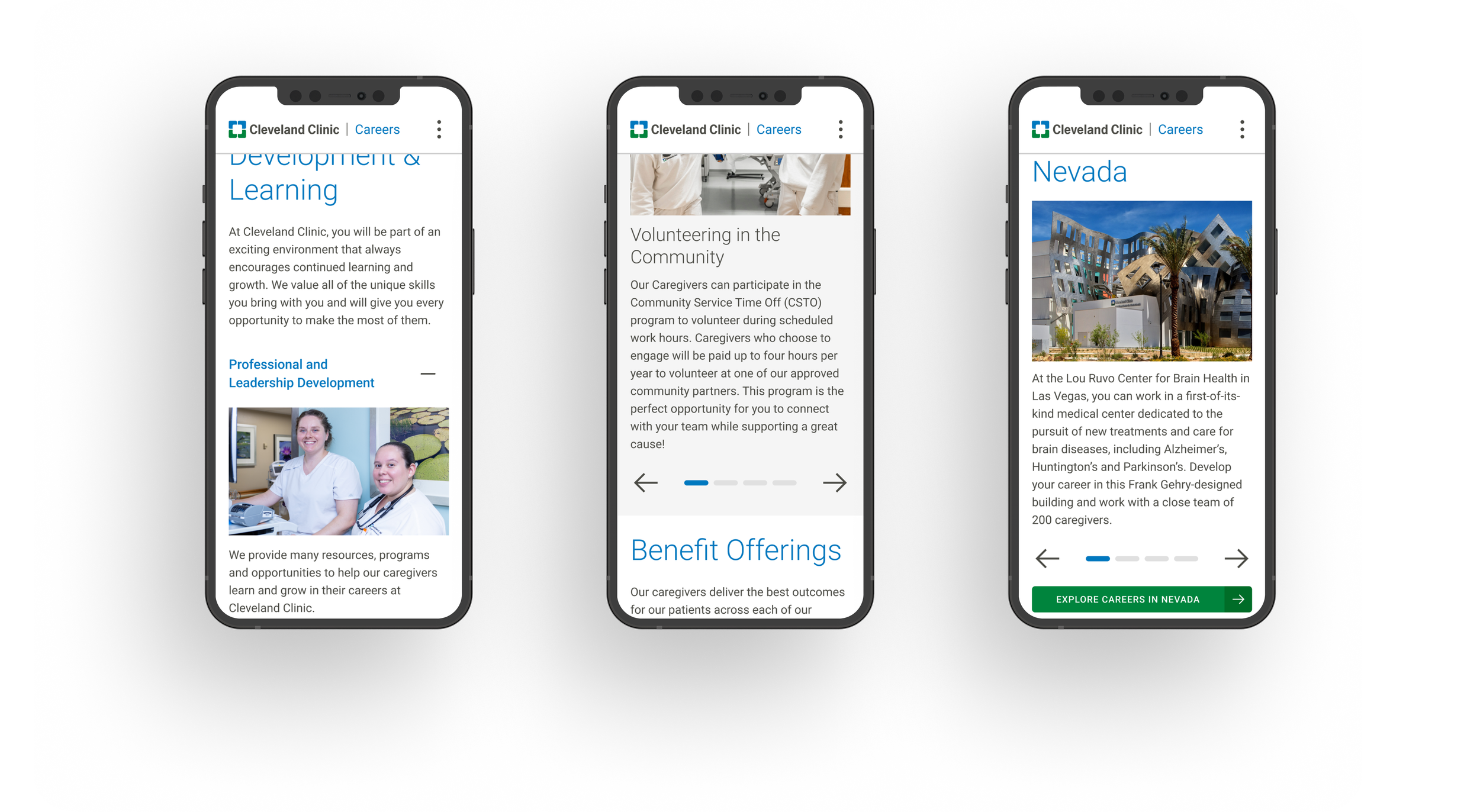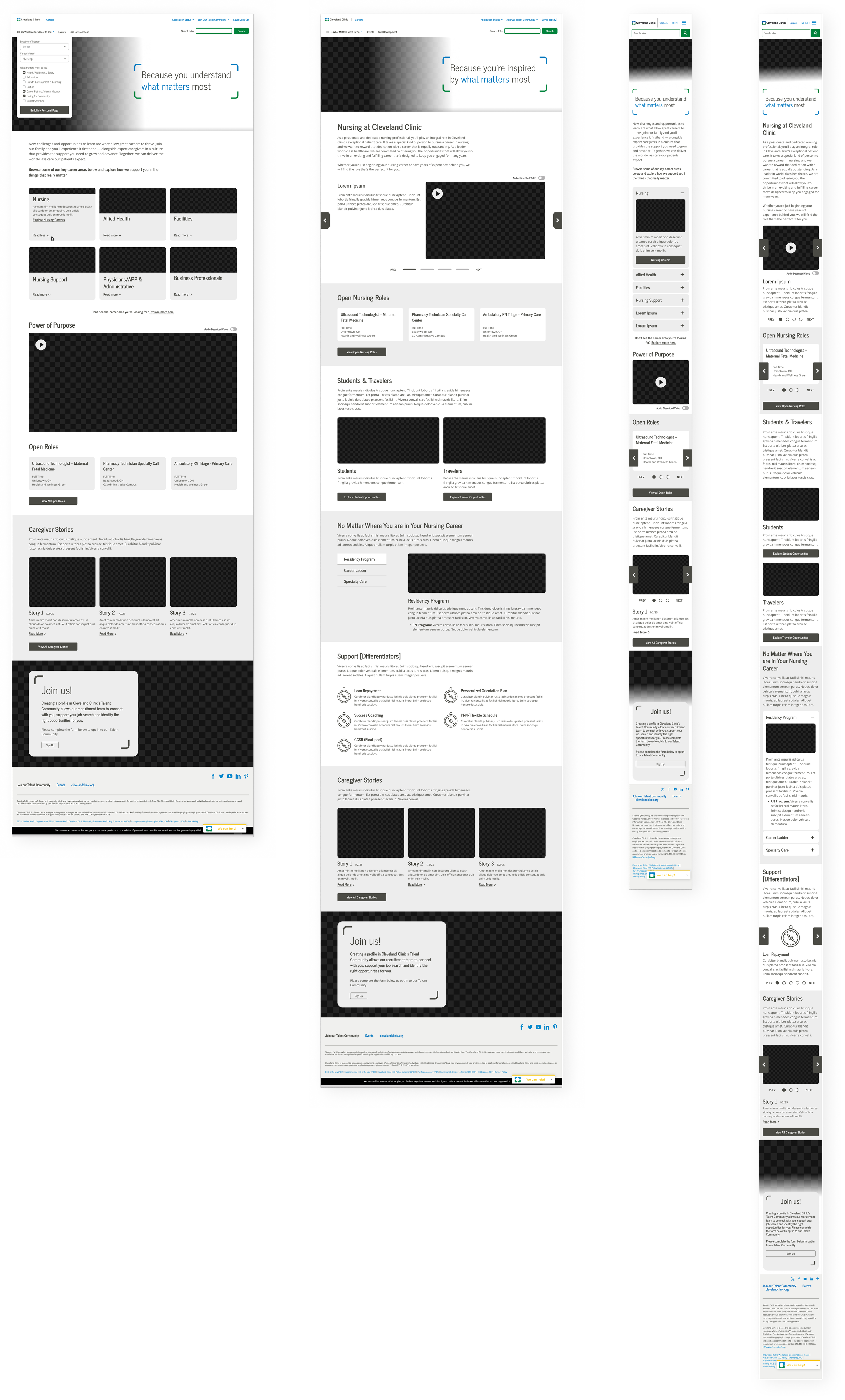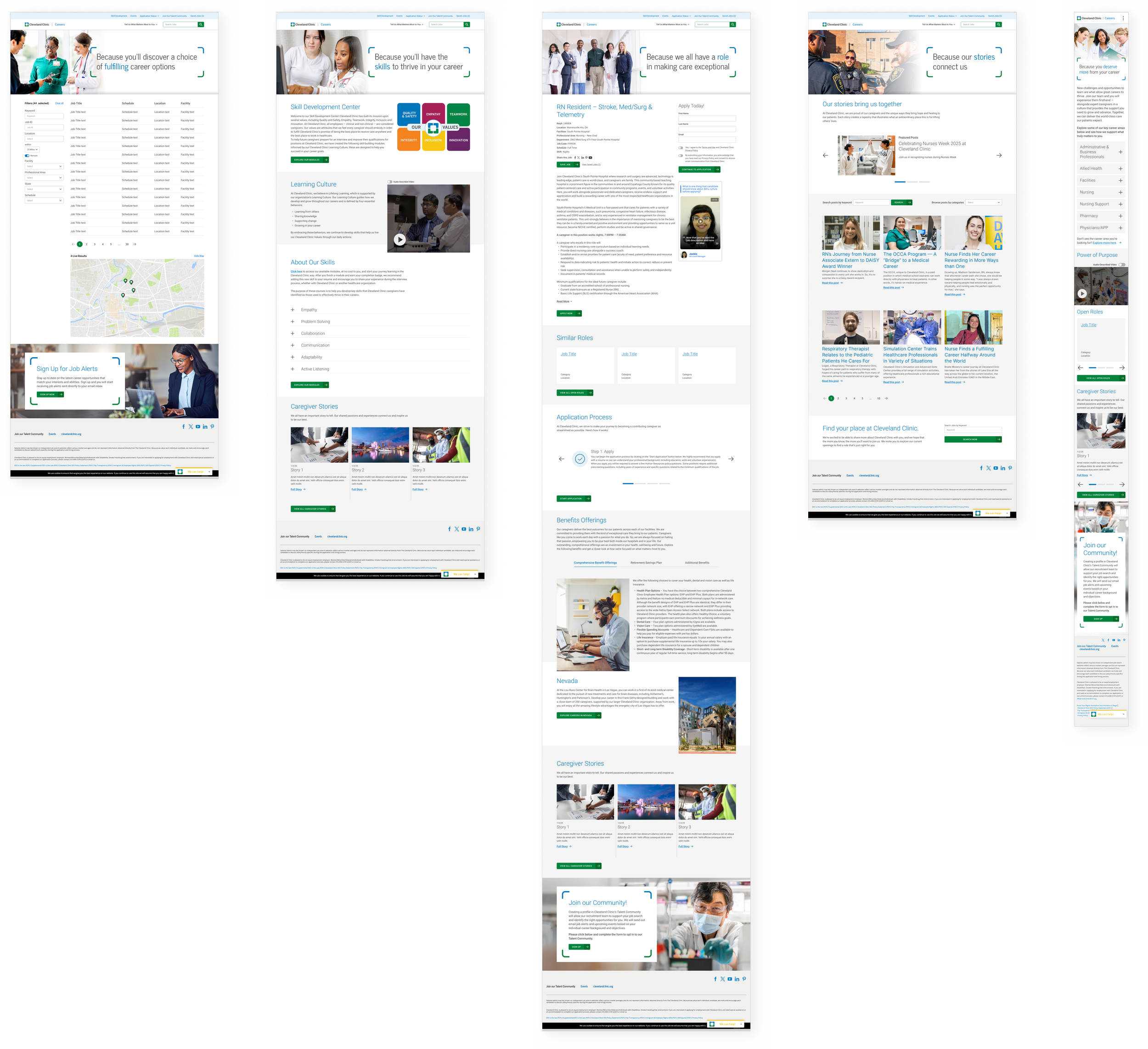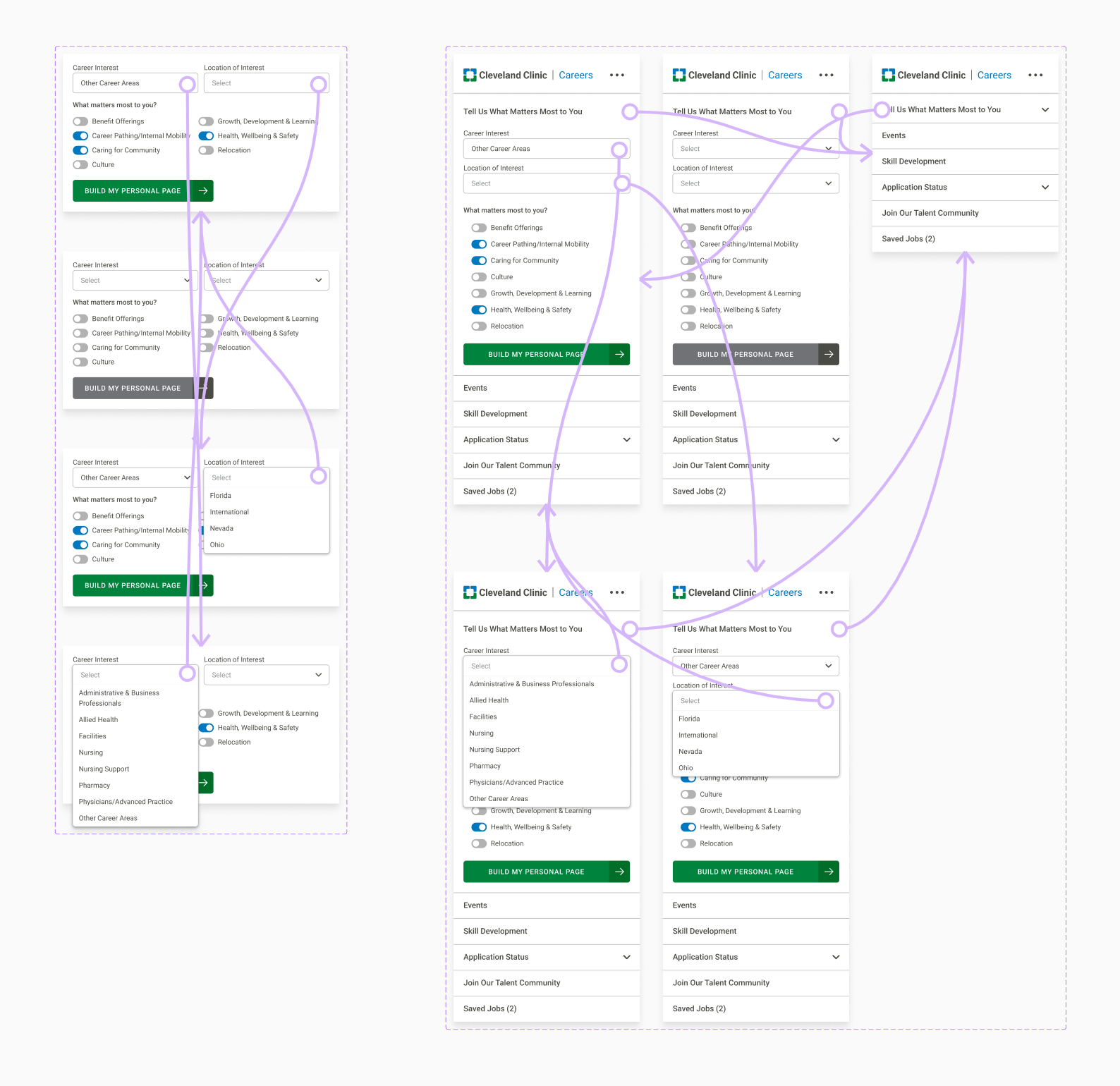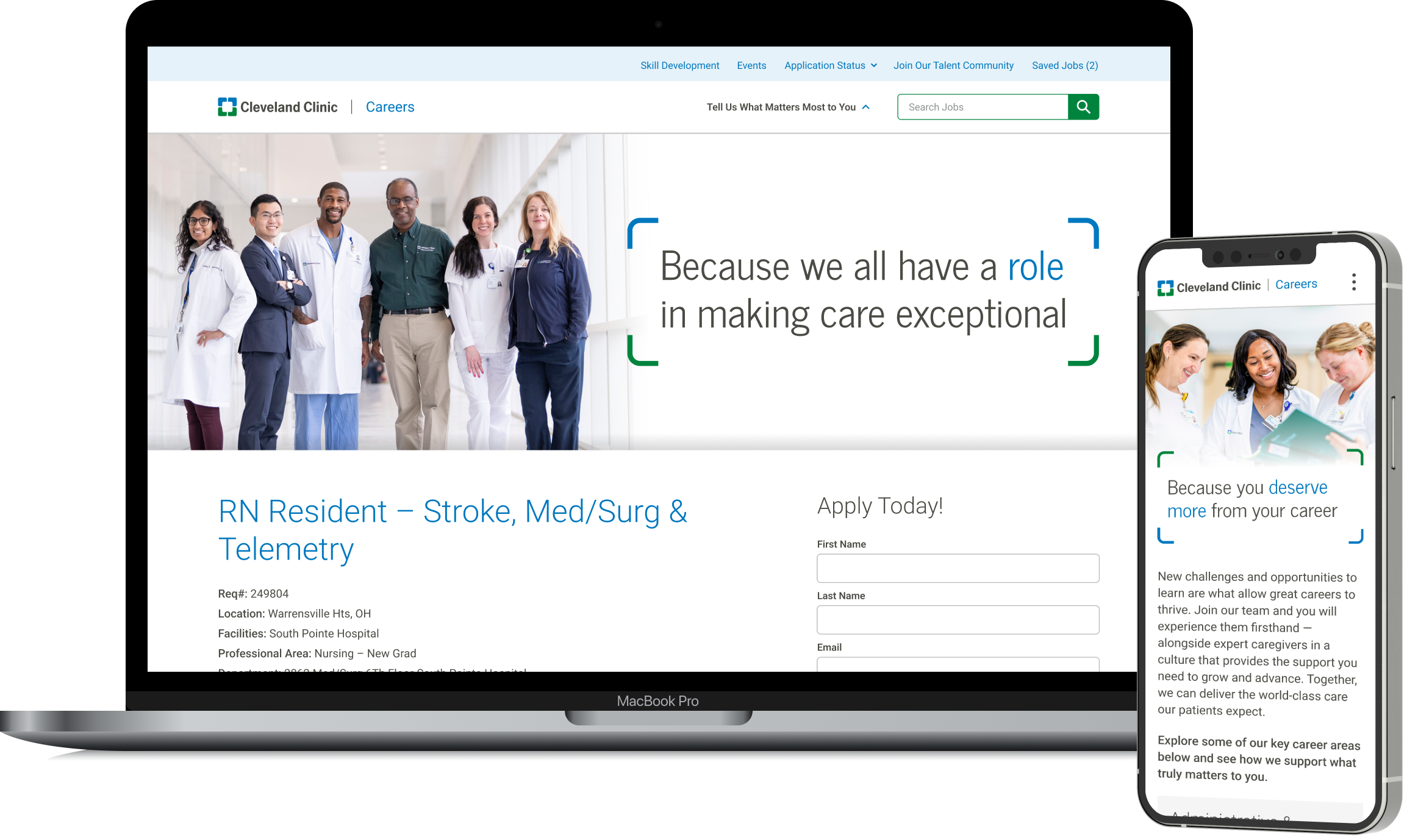Cleveland Clinic
Personalized User Experiences
Cleveland Clinic's careers website overwhelmed users with massive healthcare content across dozens of professional areas. As lead UX/UI designer, I created a personalization strategy that immediately segments users by career interests and motivators, then displays dynamic persona pages with only relevant content. The result: a scalable system that transforms information overload into personalized career discovery.
UX Strategy/UI Design/Information Architecture/Personalization/Design Systems
The Challenge
Cleveland Clinic needed to replace their existing careers website and create a solution that could handle an enormous amount of content across a range of healthcare fields. The primary challenge was information overload: users were getting lost in content irrelevant to their interests and career goals and bounce rates were high.
Research & Strategy
Working closely with Cleveland Clinic stakeholders, I conducted discovery sessions to understand our specific design challenges.
Inquiries:
Different healthcare career paths and their unique requirements
User motivations beyond just job searching (culture, benefits, relocation, etc.)
Content priorities for each professional area
Existing user journey pain points
Insights:
Healthcare job seekers have highly specific career interests and don't want to wade through irrelevant content
Users care about different motivators (benefits vs. culture vs. location) depending on their career stage
Personalization needed to happen immediately to prevent abandonment
Design Strategy: User Personalization
Based on research insights, I developed a personalized content strategy that would adapt the entire user experience based on individual motivators.
Immediate Personalization Gateway:
A dropdown menu on the homepage allows users to select what content fits their needs:
Career area of interest
Location preferences
Key motivators (benefits, culture, growth, etc.)
Dynamic Content Architecture:
I created a modular content system allowing flexible combinations of content:
After selecting motivators from the homepage dropdown menu, users are directed to a Persona page with content tailored to their specific interests and needs.
By creating Figma components for each motivator module, I was able to add or remove them with a click, allowing the client to better understand the functioning of the site with a working prototype. I had to build two versions of each module to control alternating background colors based on the user selections.
Personalized Homepages:
For a further personalized experience, returning users are directed to an alternate homepage based on their browser cookies. I created 5 distinct homepage designs:
Default
Nursing
Allied Health
Facilities
Nursing Support
Design Process & Execution
I started with systematic wireframing to solve structural challenges before visual design.
Mapped content relationships across different user paths
Designed flexible layouts that could accommodate varying content volumes
Created reusable component patterns for scalability
Tested information hierarchy through stakeholder reviews
Information Architecture & Wireframing:
Cross-Channel Design System:
I developed a comprehensive design system that:
Extended Cleveland Clinic's brand while creating a unique careers identity
Ensured responsive behavior across all devices with dedicated mobile designs
Created modular components for easy content management
Supported dynamic personalization through flexible layouts
Prototyping:
To facilitate client collaboration, I built an interactive Figma prototype featuring:
Component-based persona modules that could be toggled on/off
Dynamic background color switching based on content combinations
Working personalization flow to demonstrate user experience
Developer handoff specifications for accurate implementation
Collaboration & Implementation
Stakeholder Management
Regular client reviews throughout wireframing and design phases
Content strategy sessions to ensure accurate representation of each healthcare area
User journey validation with Cleveland Clinic's recruitment team
Iterative feedback integration while maintaining design system consistency
Developer Collaboration
Detailed component specifications for dynamic content system
Responsive breakpoint documentation for mobile implementation
Interactive prototype handoff showing personalization logic
Quality assurance support during development phase

